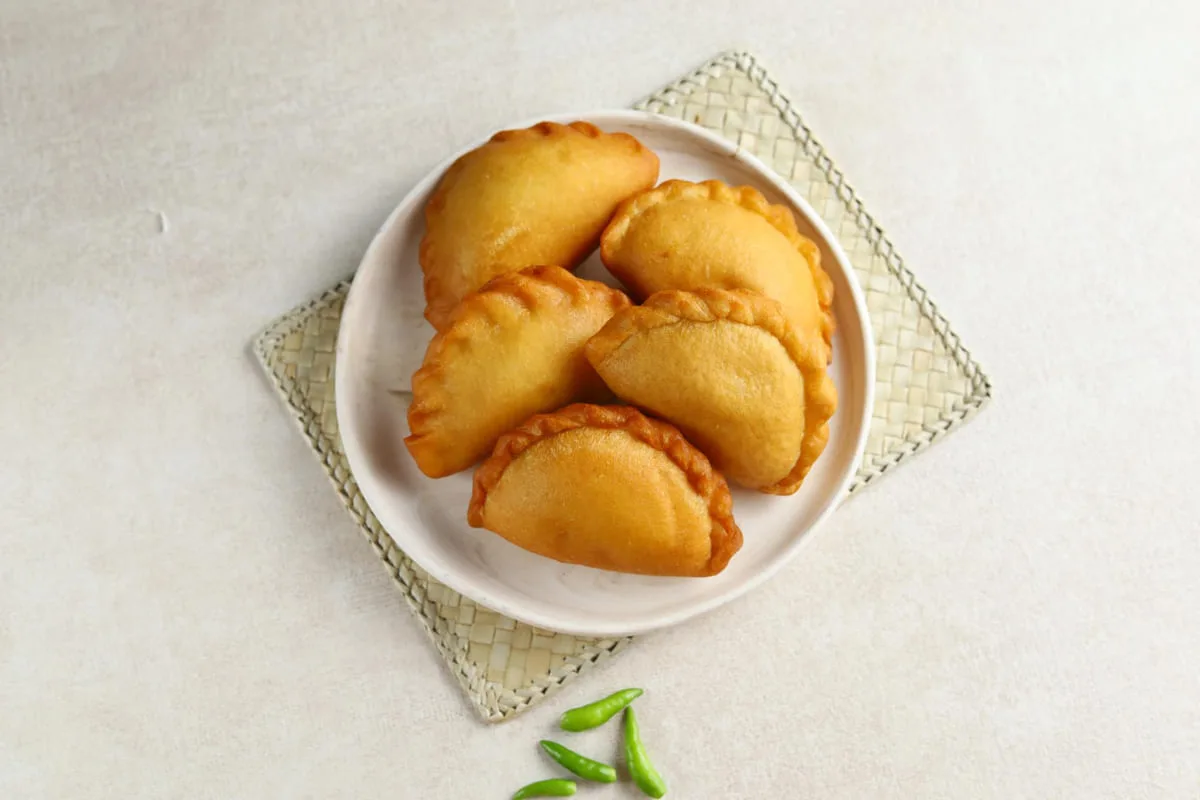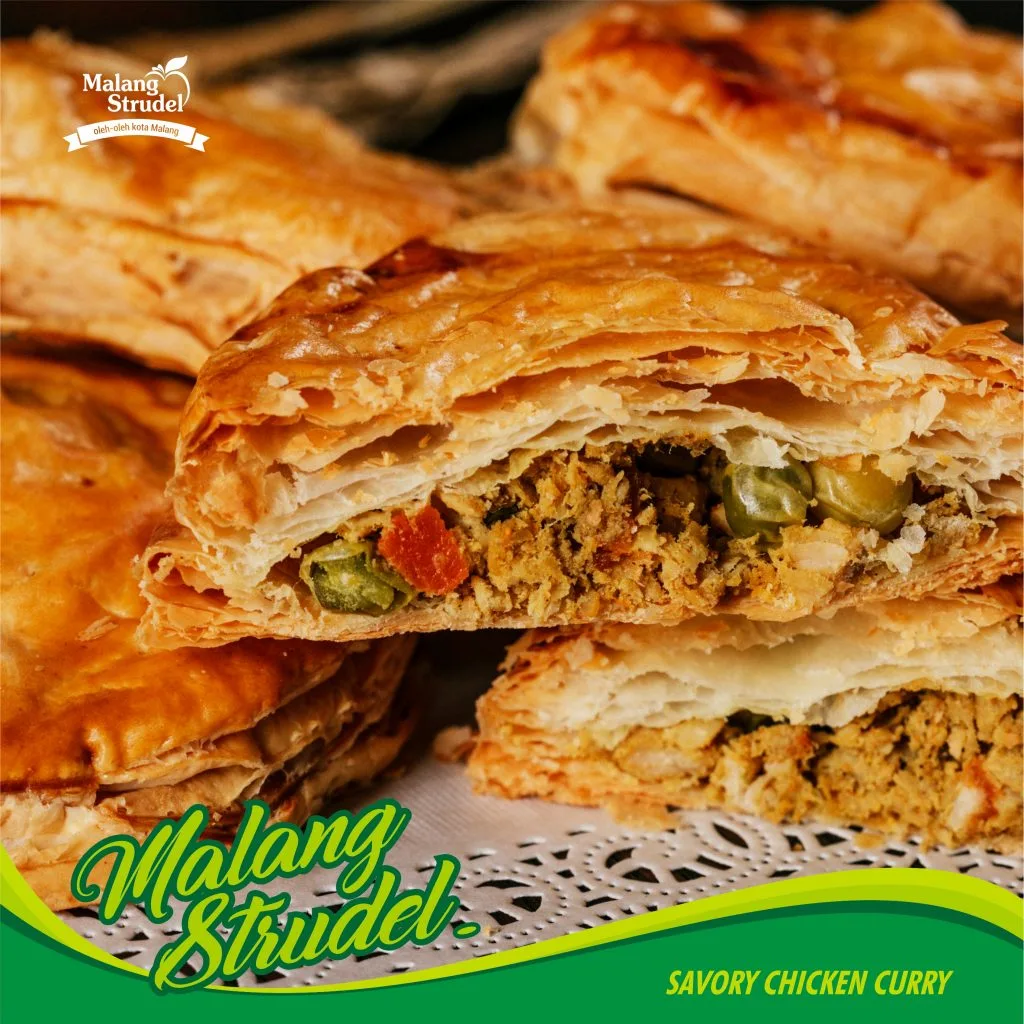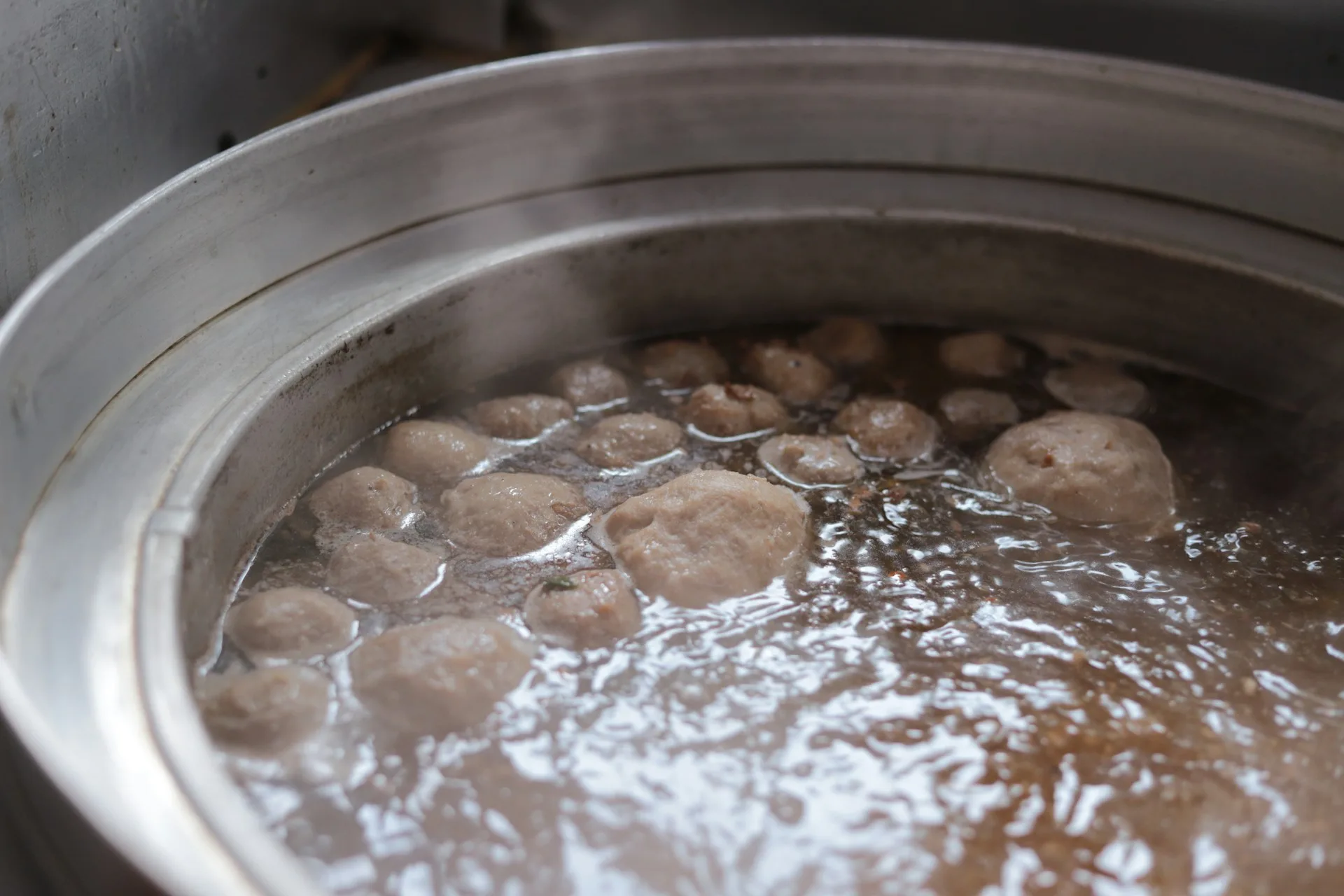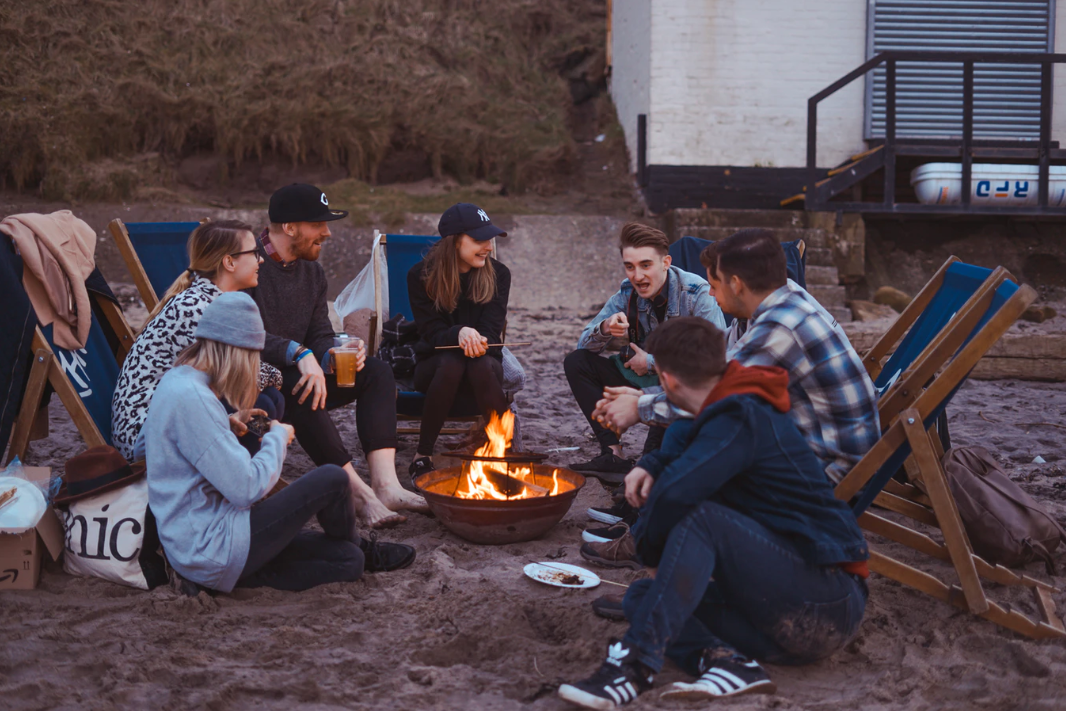Clear air is a rare thing to have in Jakarta.
While the root causes doesn’t depend on one thing only (we’re surrounded by mining sites and industrial complexes!), the amount of vehicles circulating around the city is enough to worsen our carbon footprint and pollution. Senayan, for example, can reach up to 180 AQI.
Moreover, our problem with incombustible trash seems to worsen the condition. Just take a look at the sea water when you stop by Pluit; according to World Bank’s data in 2021, Indonesia is responsible for the disposal of 346.5 kilotons of plastic waste into the sea! Even 100 sperm whales can’t even compete. These plastics are degraded into smaller <5mm particles called microplastics, and often get accidentally eaten by marine biota, which also ends up in our belly!
While this can make you feel discouraged, there are still a lot of ways to live sustainably and more mindfully that you can do routinely – in time, these tiny habits will grow into a bigger impact when it becomes a collective effort.
Here are some insightful recommendations that Bob can give you on how to start living sustainably in Jakarta. Keep on reading!
Manage and Minimize Your Food-Waste
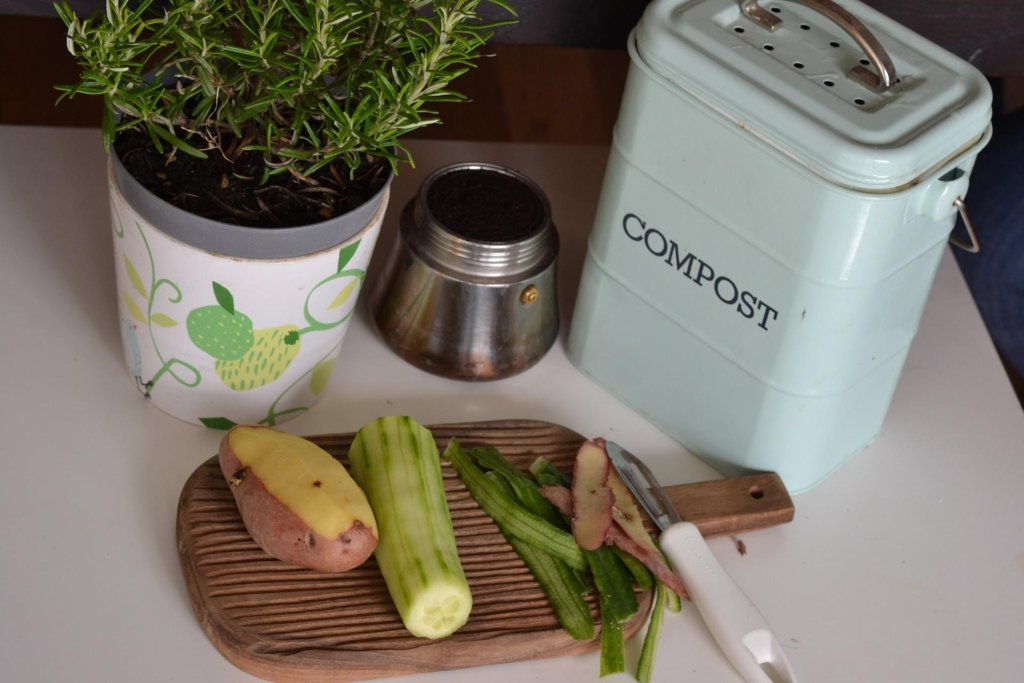
Photo: Lenka Dzurendova via Unsplash
Did you know that there was a big explosion in Cimahi, West Java, that obliterated two villages with the casualties of 157 people, with many still missing?
In 2005, one of the biggest landfills in West Java, Leuwigajah, exploded due to methane gas buildup from poorly-managed waste. It was deemed as the second worst landfill tragedy in the world, just after the Payatas landfill tragedy in the Philippines, and is the reason why Indonesia has a national waste awareness day.
When organic matter such as food scraps, yard waste, and paper products are buried in a landfill, they break down over time. As microorganisms (like bacteria) consume this organic material in the absence of oxygen (anaerobic conditions), they produce methane gas as a byproduct. This chemical phenomenon is best known as methanogenesis.
Though it might seem like a lost cause, there are actually ways you can do to prevent this from happening, one of them being trash sorting and composting. For starters, sorting out your organic waste from the inorganic ones really works wonders. As most of household waste itself is food waste–which is organic, you can stash them inside a compost bin to use as a fertilizer, or even make your own eco-enzyme from scratch!
Other things to note is to manage your food supplies wisely and effectively. Sure, buying products in bulk is cheaper, but do you really need that much food?
Making a shopping list whenever you go to get your groceries will help you gain self-control in what you’re purchasing, as it can also save you a lot of money and keep away the urge to impulsively buy something.
See more: 7 Best Street Food in Jakarta That You’ll Definitely Adore!
Shop Locally & Get to Know Your Farmers
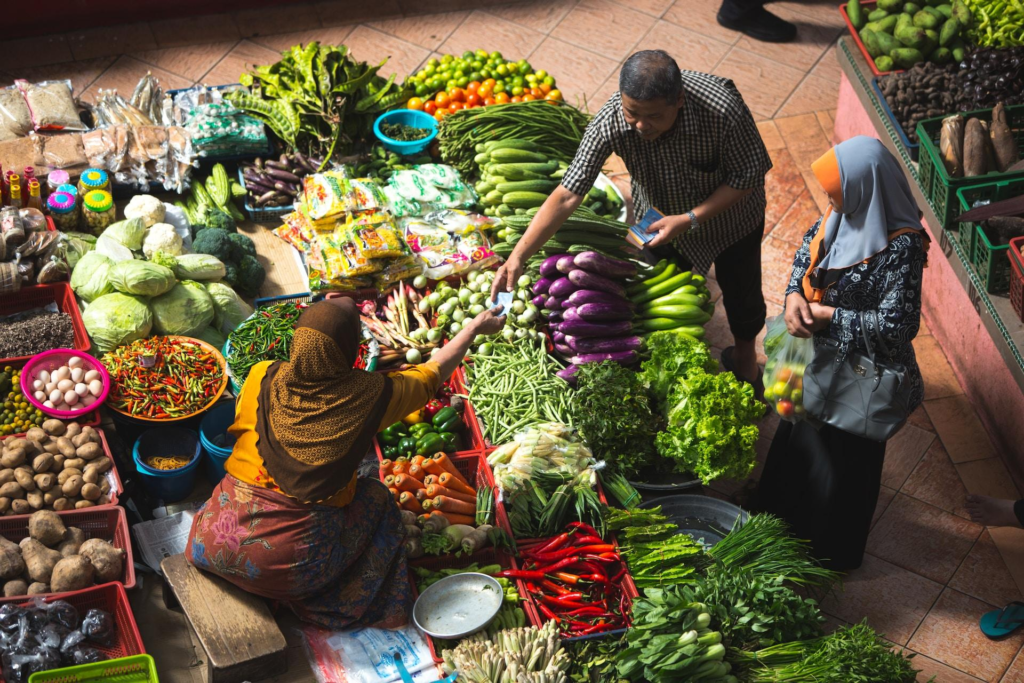
Photo: Alex Hudson via Unsplash
Picture this: you’re whipping up a bowl of kale salad for lunch, but the kale was planted and harvested in the US, goes through sorting and packaging in China, before it arrives in grocery stores around Jakarta. Can you imagine how much carbon footprint is left just for a bag of imported, organic kale?
Researchers believe that the best, and most sustainable way to get your fresh produce is to shop locally from the market, or from the farmers directly.You might be intrigued to opt for a more ‘organic’ produce for a healthier choice, but the healthier choice sometimes isn’t even that sustainable.
Making use of what produce is available in the current season is called diversifying your food. This sustainable practice goes back to when our ancestors used to do everything traditionally. Besides, growing produce in the right season will boost its growth, making them have a higher quality than the produce that is planted and harvested all year round.
If you want to take it to a whole nother level, getting to know local farmers that have your favorite and staple needs will save you a lot of money and empower not only yourself, but the farmers too. By skipping the middleman/wholesaler who are keen to buy produce at a lesser price, the farmers have the chance to sell them for more!
Read Also: 8 Interesting Places in Jakarta That are Well Worth the Visit
Reduce Single-Use Plastic
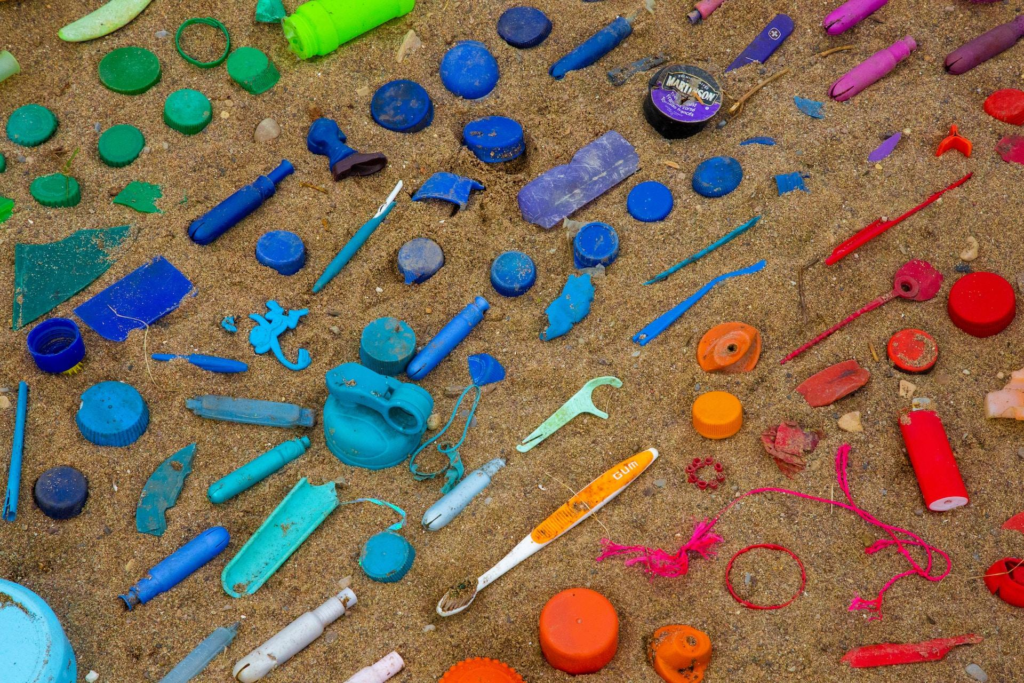
Photo: Jas Min via Unsplash
Again, while it might seem like you’re not making any difference when you order a takeout and tick the utensil box, most of this will end up in the sea and degrade into microplastic.
“We can just recycle them, can’t we?”
Bottle caps and plastic bottles might be easy to recycle. Small utensils like spork and straws? Not so much.
Plastic utensils are way too small, sometimes way too thin, and oftentimes have irregular and inconsistent shapes, which can cause problems during the sorting and processing stages at recycling facilities. They can get lost or worse, jam the recycling machinery altogether.
“But what about biodegradable straws and plastics?”
Not only are these labels misleading (fossil fuels are still used in their production), the bitter truth is that most of these biodegradable materials would just end up the same way as the other: in landfills as it produces more methane gasses, or sailed away to the sea and become another microplastics.
Bamboo-sourced utensils might be the better alternative for now.
Public Transportation is Key
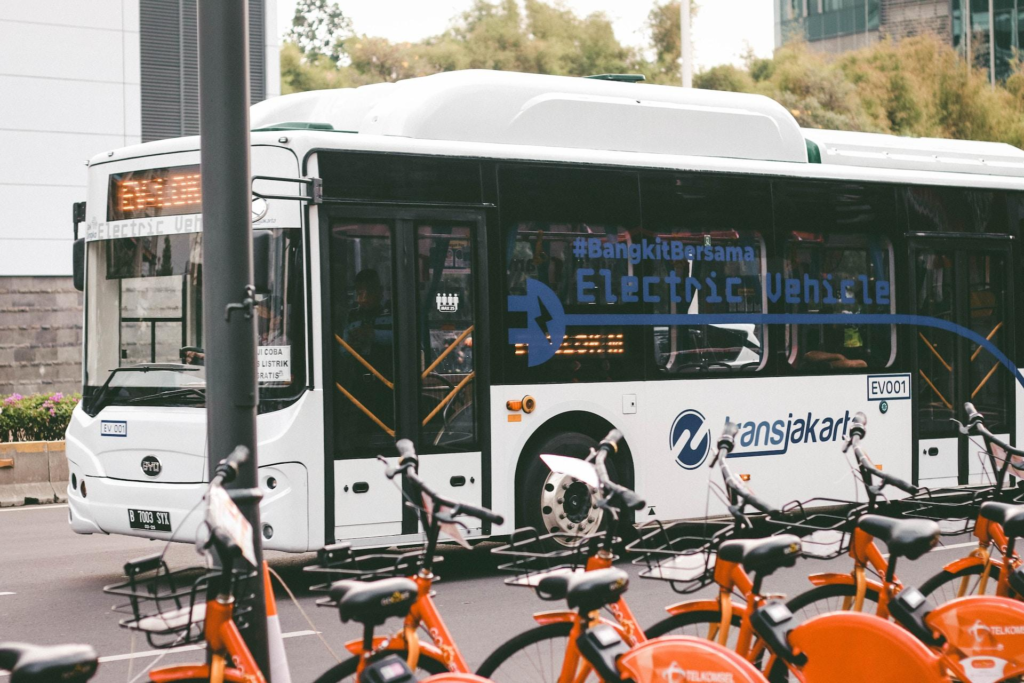
Photo: Pradamas Gifarry via Unsplash
One of the most significant contributors to greenhouse gas emissions is the use of personal vehicles. Besides, it’s also one of the most obvious reasons why Jakarta is the way it is right now; home to the most excruciating traffic jams.
The length of 3 small cars, with only two passengers at most, is the same length as one TransJakarta bus that can accommodate 30+ commuters. The existence of electric buses is also more energy-efficient, and also emits fewer carbon emissions per commuter compared to individual cars.
Overwhelmed by the bus routes? Travel back and forth to South Jakarta from Bundaran HI easily with MRT! Not only do you get a chance to chill after a hot day out, it’s also pretty therapeutic to watch Jakarta pass by through the window.
For further and broader trips, LRTs and Commuter Lines can also be considered. A few tips to look out for is; (1) Make sure all of your belongings are safe and are within your reach. If it’s peak hour, hug all of your bags in front of yourself; (2) Wear comfortable shoes!; (3) Bring your water bottle with you, Jakarta is rough, make sure to stay hydrated; (4) Listen to some music, it might help if you get overwhelmed easily; (5) Make sure your E-Money is topped up and within reach.
See more: Get Active This Weekend! 7 Exciting Outdoor Activities You Can Do in Jakarta
Travel Sustainably
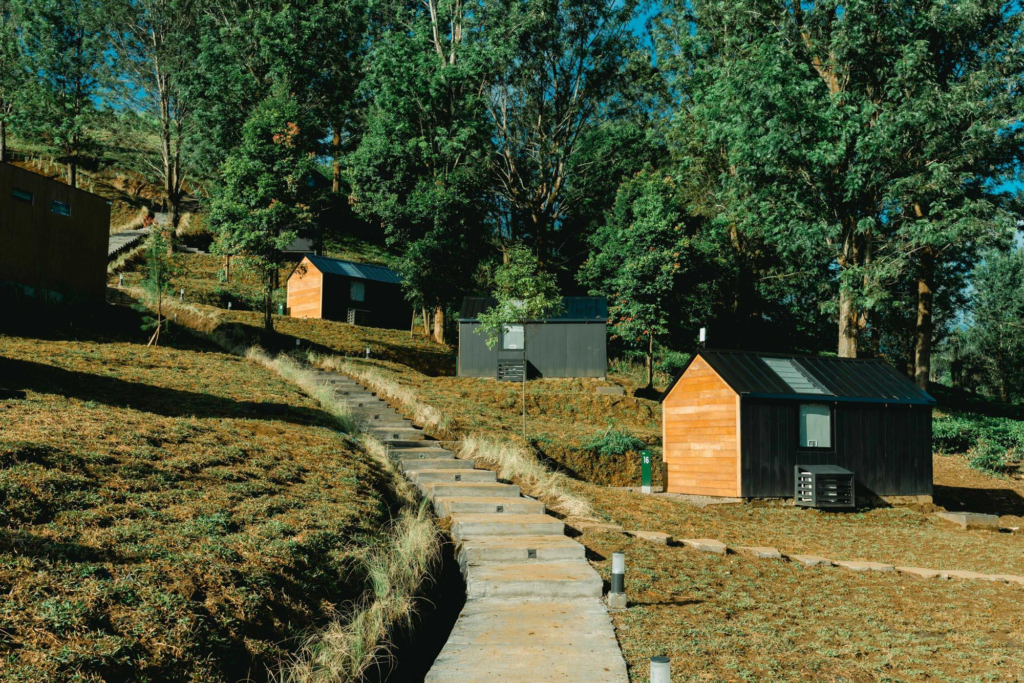
Traveling sustainably doesn’t mean you have to sacrifice your comfort; one of the efforts you can try to travel more sustainably is to make sure your accommodation supports the same struggle too!
Take a look at Bobocabin for an example. In Bobocabin, we take our environmental responsibilities seriously. We’re committed to supporting sustainable practices in every way possible by implementing initiatives such as:
- Wooden toiletries:A small step, yet we hope it can grow into an impactful choice to reduce the use of single-use plastics.
- Sustainable hydration:A drinkable water filter unit from Terra Water is available at Bobocabin Ubud and Kintamani to reduce the need for single-use water bottles, minimizing plastic waste.
- Carbon Offset program with Fairatmos: An optional toggle during your booking process in the Bobobox App that encourages your contribution to climate projects in Indonesia.
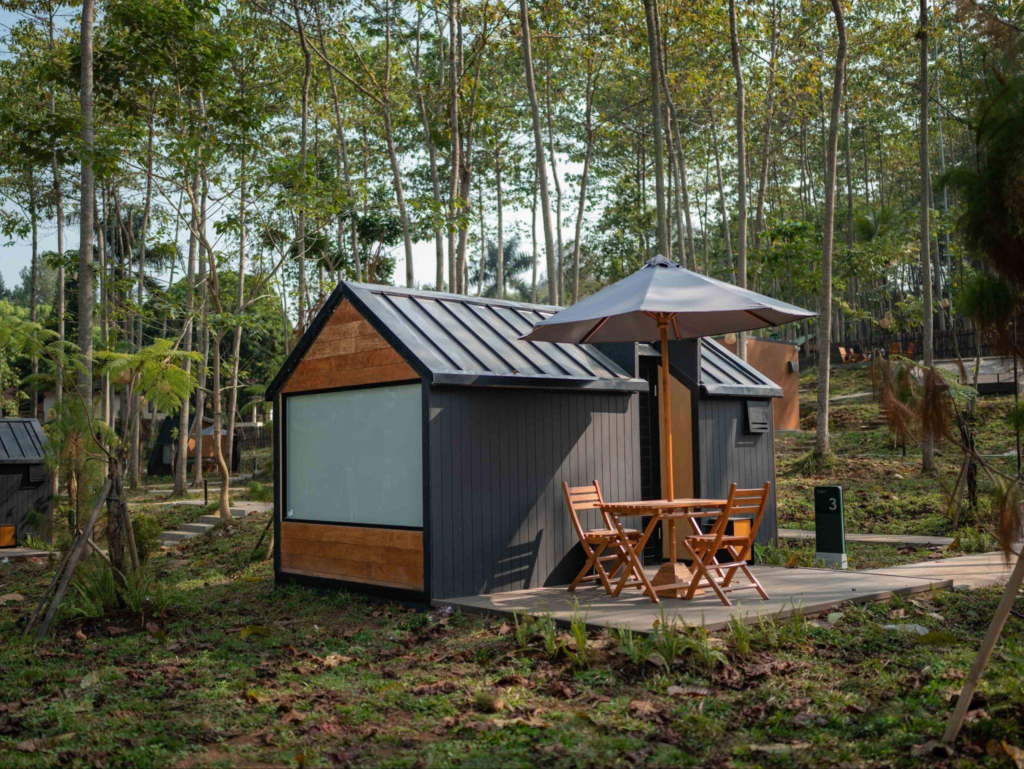
If you want to start taking small steps of living sustainably in Jakarta, but still need a reinvigorating escape anytime, Bobocabin Gunung Mas and Bobocabin The Tavia might be the best option for you!
Aside from Bobocabin’s commitment to our sustainable practices, these two Bobocabin branches are only a short drive away from Jakarta, resulting in lesser carbon footprints. Not feeling like leaving the city? No worries! You can still enjoy the comfort of staycation with any Bobobox of your choice; from Kebayoran Baru to Tanah Abang!
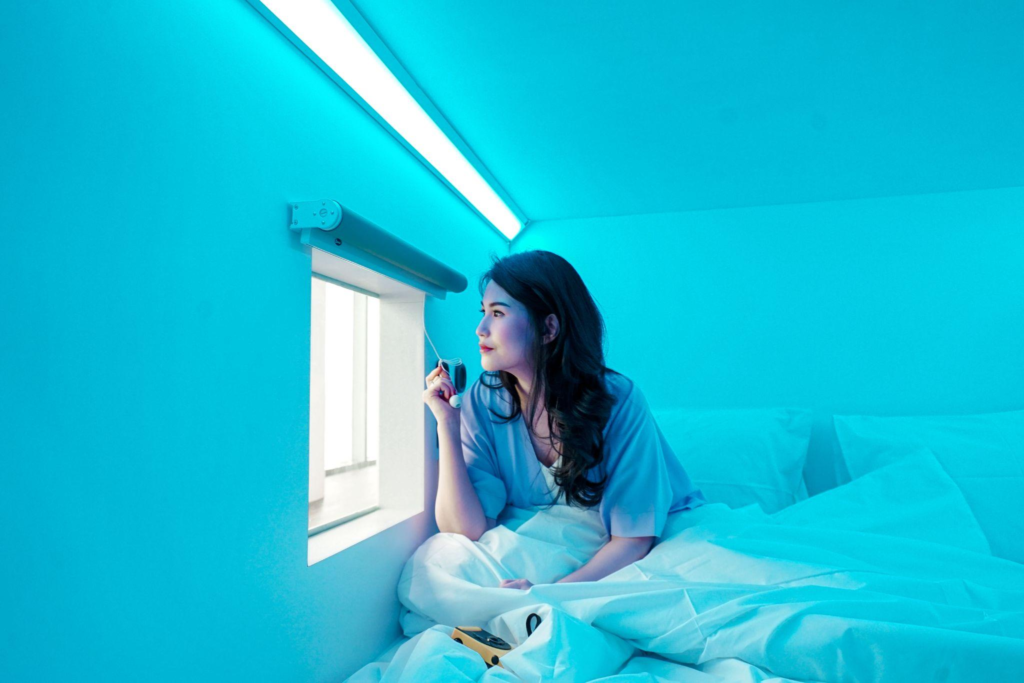
Each floor in every Bobobox branch is equipped with a water gallon, so guests are encouraged to bring their own reusable bottles. To limit single-use plastics, we only provide disposable toothbrushes by request too. For longstay guests, we also encourage you to reduce water and electricity usage by choosing the option to wash your linens every three nights.
Making a more eco-conscious choice in everything you do, no matter how small, can slowly grow to a bigger impact if done collectively. So, are you ready to start? Today is as good a time as any!
Header image by: Akil Mazumder via Pexels



